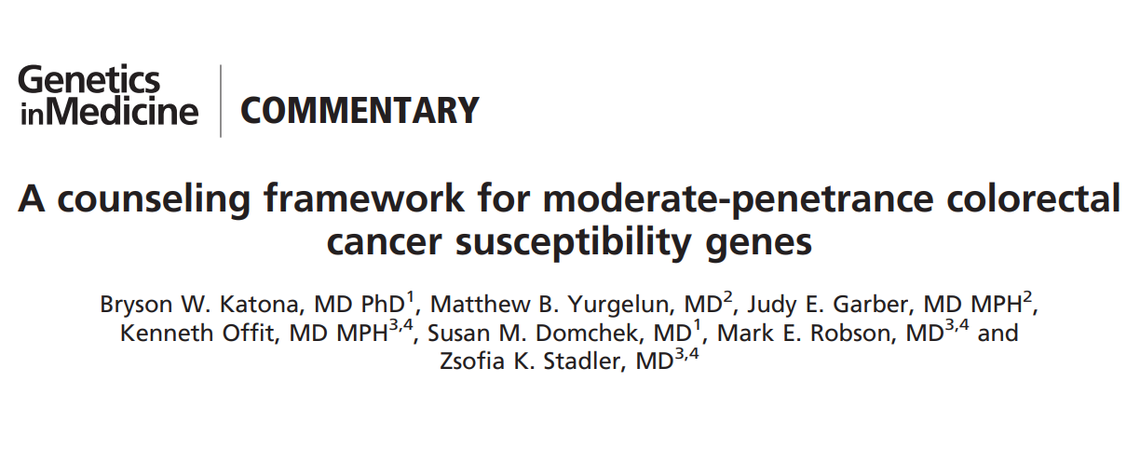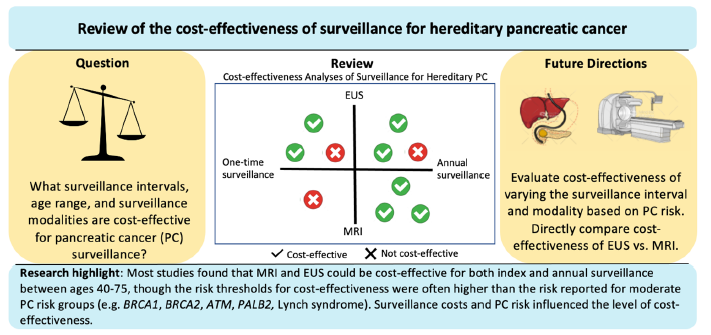News
August 2025
Welcome to Yasmin Kamal, a second year gastroenterology fellow, who joined our group to work on a project focused on the role of genomic integrity on T cell dynamics in Lynch syndrome and BRCA1/2 carriers.
July 2025
Bryson was promoted to the Jeffery and Cynthia King Associate Professor of Lynch Syndrome Research and Associate Professor of Medicine and Genetics on the CE track.
Welcome to our new group member Theresa Clark, who is a PhD student in Pennt's CAMB - Developmental, Stem Cell, and Regenerative Biology PhD Program. Theresa will be working on a project focused on mechanisms of gastric carcinogenesis in Lynch syndrome.
May 2025
The Katona Lab had a fantastic showing at this year’s DDW in San Diego with 3 talks and 5 posters (including 3 Posters of Distinction) all on hereditary GI cancer topics that span from basic science to clinical/translational research including H pylori seropositivity in BRCA1/2 carriers, BHB supplementation in Lynch syndrome, controversial pancreatic cancer surveillance practices, the yield of repeat non-targeted gastric biopsies in Lynch syndrome, and more. Apart from the research, it was also great being able to spend time in San Diego together.
March 2025
Bryson Katona, Jessica Long, John Wherry, and Sam Halter (pictured below) hosted Penn's 4th Annual Lynch Syndrome Symposium with record attendance and a fantastic slate of speakers. The Katona Lab was well represented in the research portion of the Symposium with Bhoomi Madhu, Anjeli Manam, and Jessica Vadaketh all giving talks on their research.
January 2025
Welcome to Bhoomi Madhu who joined our group as a postdoc. Bhoomi will be working on the role of beta-hydroxybutyrate (BHB) administration as a potential chemoprevention strategy in Lynch syndrome. Additionally, welcome to Rohan Gala, an undergraduate student at Penn, who joined our group and will be working on laboratory projects focused on Lynch syndrome.
Work from our group published in Gut Microbes examined microbiome and metabolomic signatures in colonic polyposis patients with and without a known genetic driver, allowing us to develop microbiome/metabolomic prediction models for colonic polyposis. This was an exciting collaborative project with the Ni Lab at UTSW.
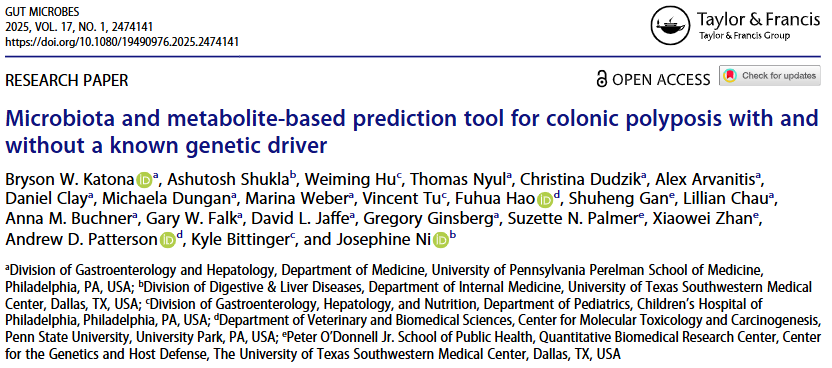
December 2024
New work from our group, just published in Cancer, determines pancreatic cancer risk among women with a BRCA1 or BRCA2 mutation in the largest prospectively followed cohort to date. This work will provide important data to the field that will enable BRCA1/2 carriers to make informed decisions about their screening.
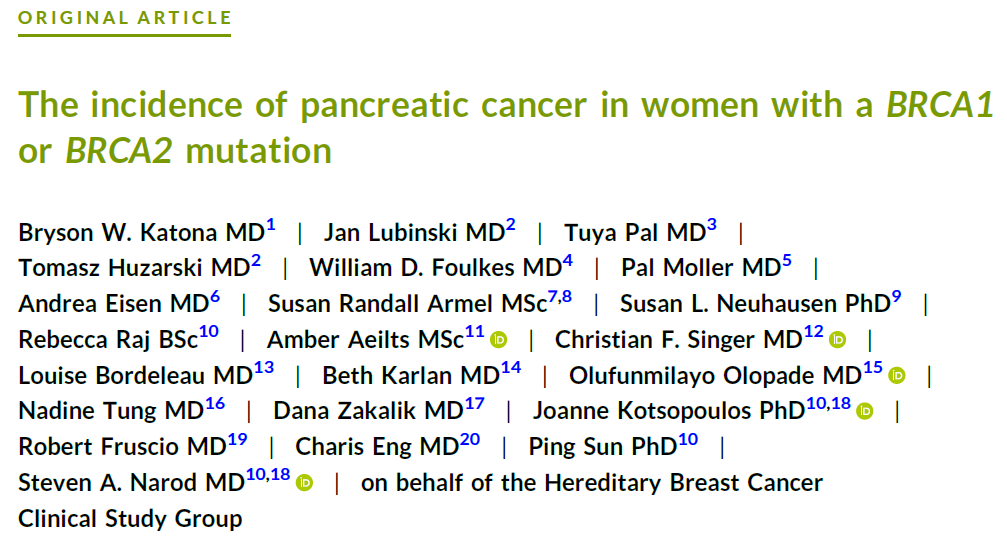
November 2024
Congratulations to Danielle (Daniela) Mirda, who published an incredibly important manuscript on the colonic neoplasia detection rate in Lynch syndrome. This work will be important for providing "ballpark" neoplasia detection rates to clinicians performing endoscopic surveillance in Lynch syndrome.
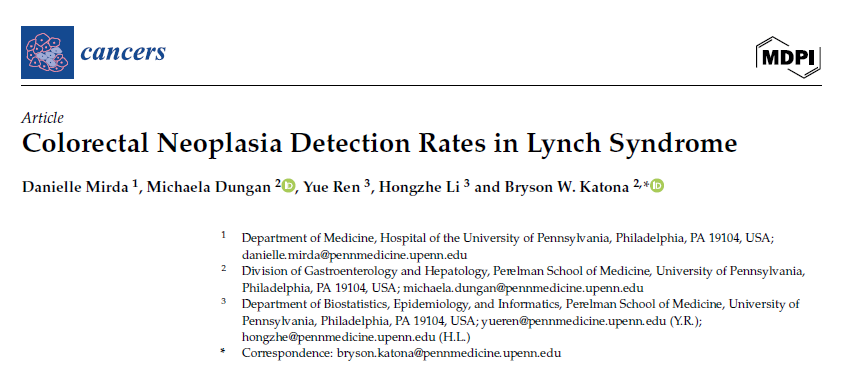
September 2024
Congratulations to Ariana Majer on publishing the most comprehensive review-to-date about the rapidly expanding role of menin in cancer. This review is a true tour de force, and is a must-read for anyone wanting to learn more about this field.
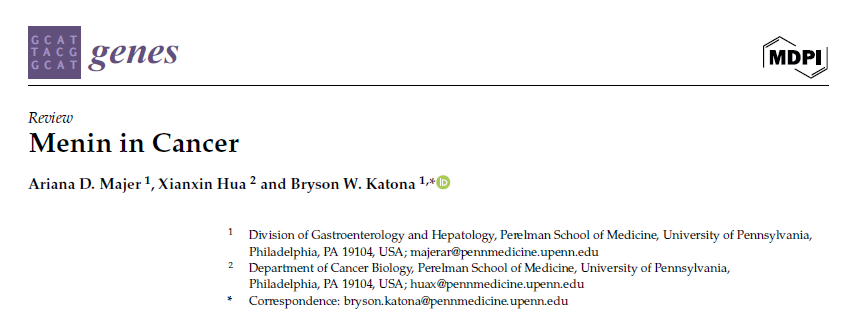
August 2024
We were thrilled to be able to contribute to this special curated collection of manuscripts in Familial Cancer focused on hereditary pancreatic ductal adenocarcinoma. This is the first review ever to address the important topic of cost-effectiveness of pancreatic cancer surveillance in high-risk individuals.
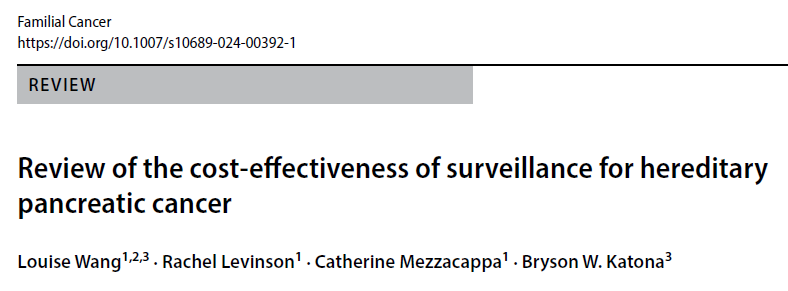
June 2024
Welcome to Linda Zhu, an undergraduate student at Penn, who joined our group and will be working on laboratory projects focused on hereditary gastric cancer risk. Excitingly Linda was awarded a spot in Penn's Undergraduate Student Scholars (USSP) Program for the summer of 2024!
May 2024
Our group was well represented at DDW in Washington DC where we had three abstracts presented, including an oral presentation by Daniela Mirda, who presented on colonic neoplasia detection rates in Lynch syndrome. Daniela was able to present in the hereditary GI cancer abstract session that Bryson was able to moderate with Fay Kastrinos.
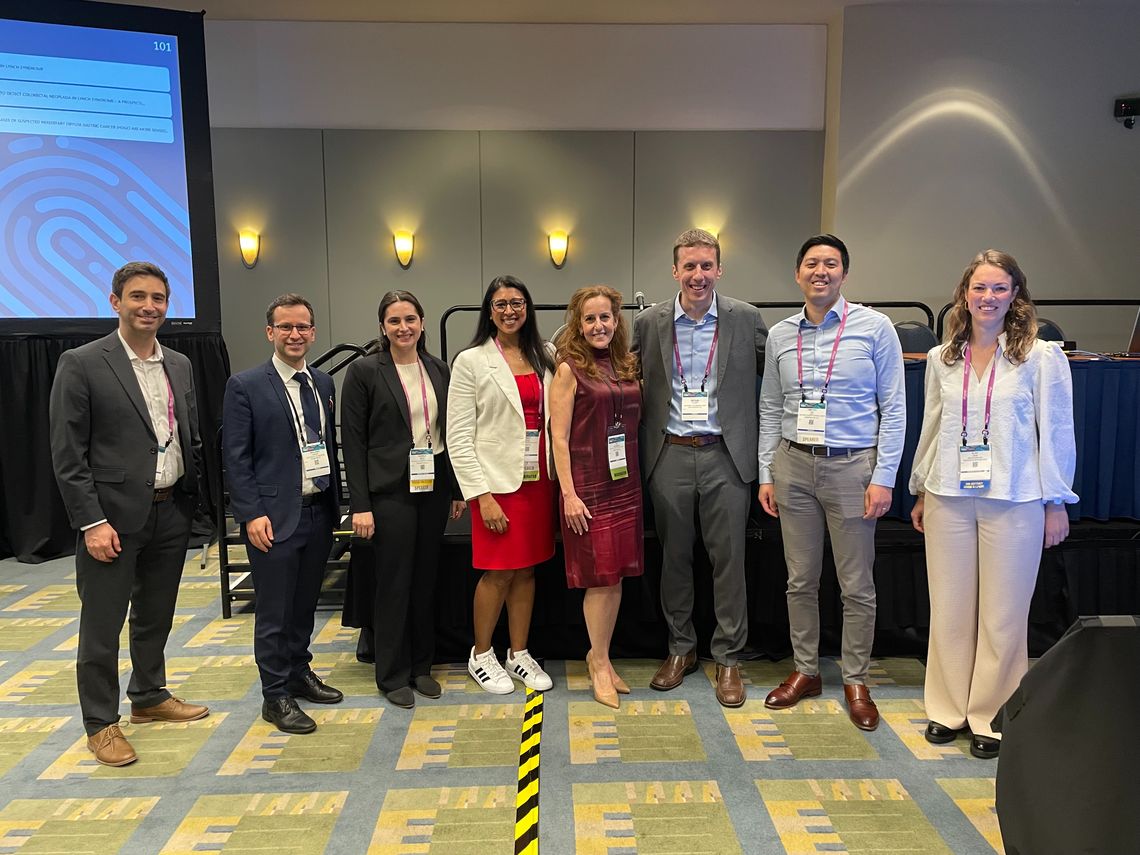
April 2024
Welcome to Sara Karley who joined our group as a Clinical Research Coordinator A. Sarah will be working on clinical studies focused on pancreatic cancer early detection.
January 2024
Welcome to Grace Snyder, a Master's in Genetic Counseling graduate student, who joined our group and will be examining reasons for pancreatic surveillance discontinuation amongst individuals at high risk of pancreatic cancer.
November 2023
Welcome to Kevin Dinh who joined the lab as a Research Specialist A. Kevin will be working on projects focused on hereditary gastric cancer,
October 2023
Penn was well represented at this year's CGA-IGC meeting where we had the opportunity to present data from two recent papers, including one that was simultaneously published in JCO Precision Oncology.
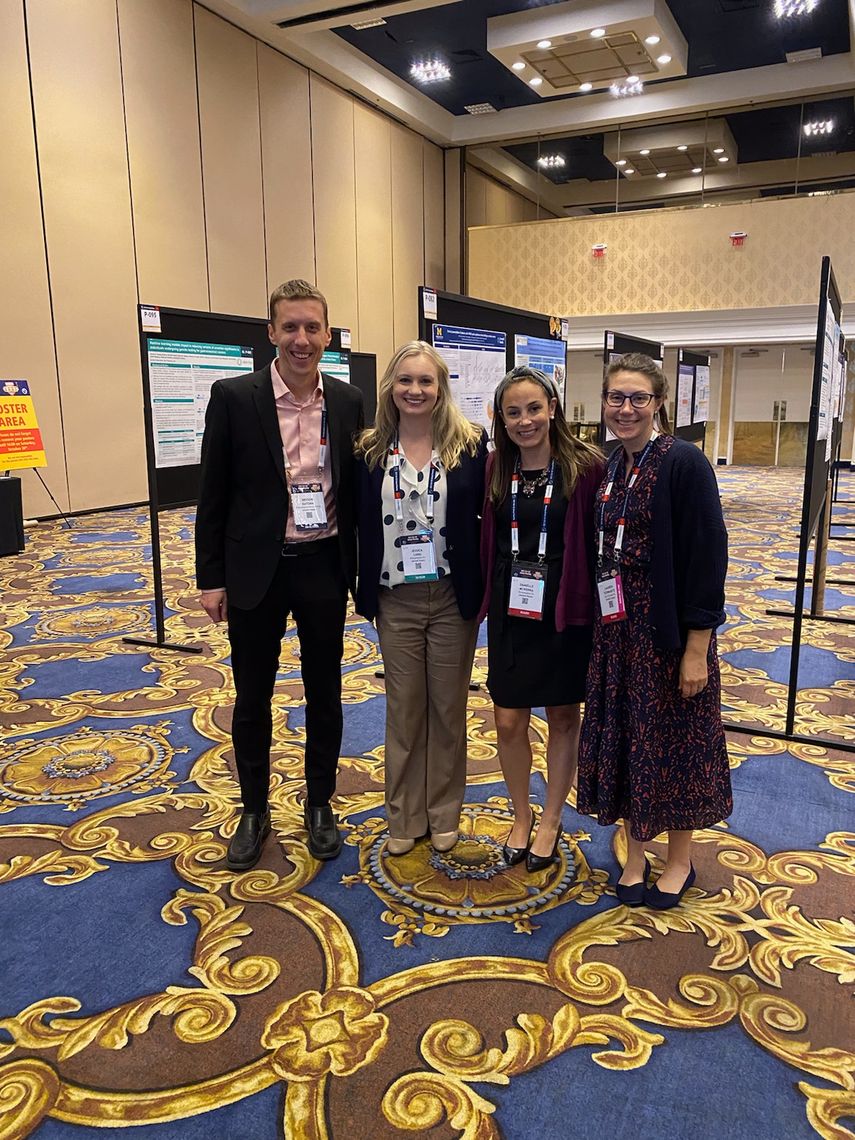
August 2023
Congrats to Thomas Nyul and Keely Beyries, along with so many others in the lab and our close collaborators, on their recent publication in Cancers showing how menin is important for maintaining cholesterol homeostasis in colorectal cancer through repression of LXR.
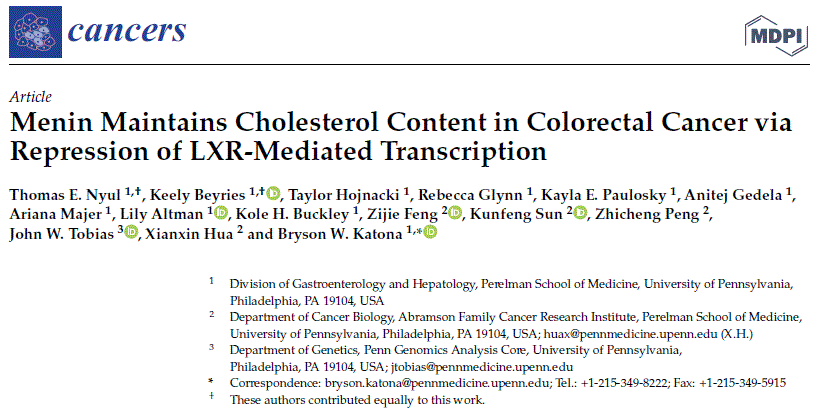
Bryson Katona and Kole Buckley had a wonderful and productive meeting with Sandra Ryeom and her group (our friends and collaborators!) at Columbia University.
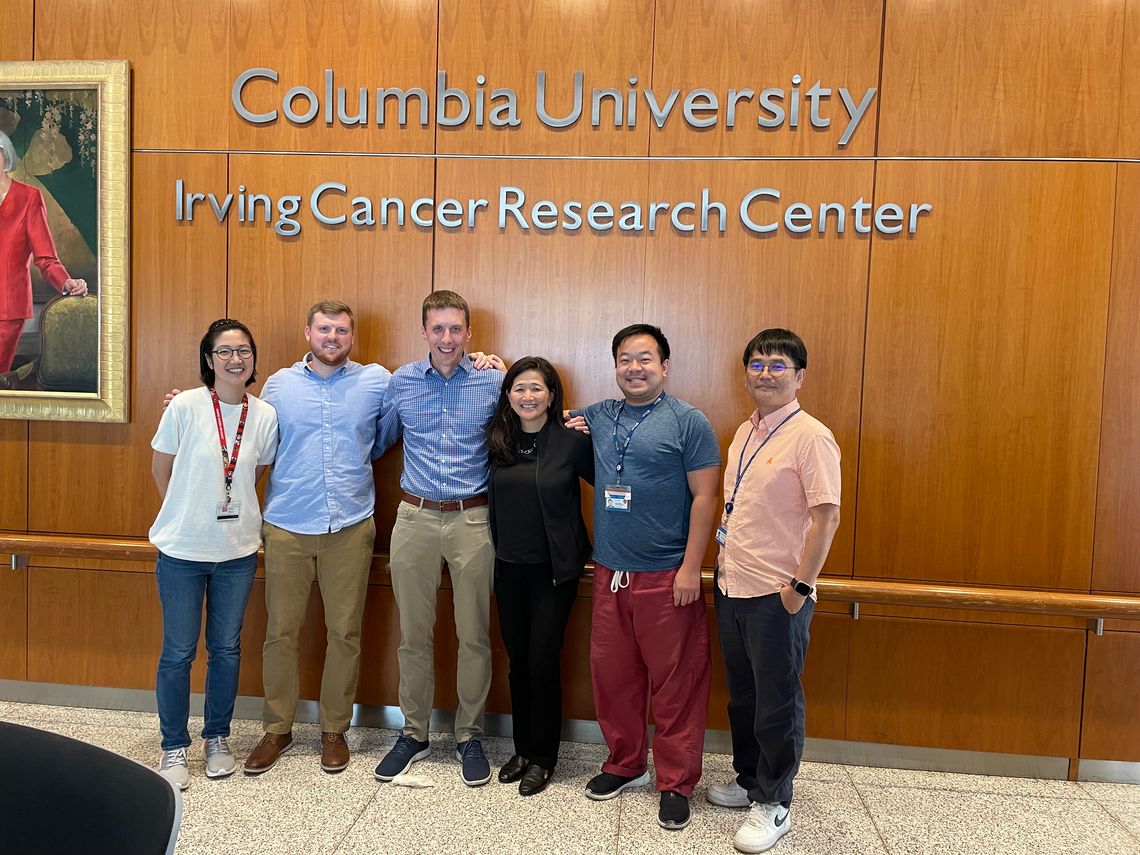
May 2023
Welcome to Ariana Majer, a PhD student in the CAMB-Cancer Biology Program, who is joining the lab to work on understanding the role of menin in hereditary colon polyposis syndromes.
Welcome also to Lily Altman, an undergraduate student at the University of Virginia, who is joining the lab for the summer.
Marya Pulaski presented her research examining the yield of gastric biopsies in Lynch syndrome at Digestive Disease Week in Chicago, IL.
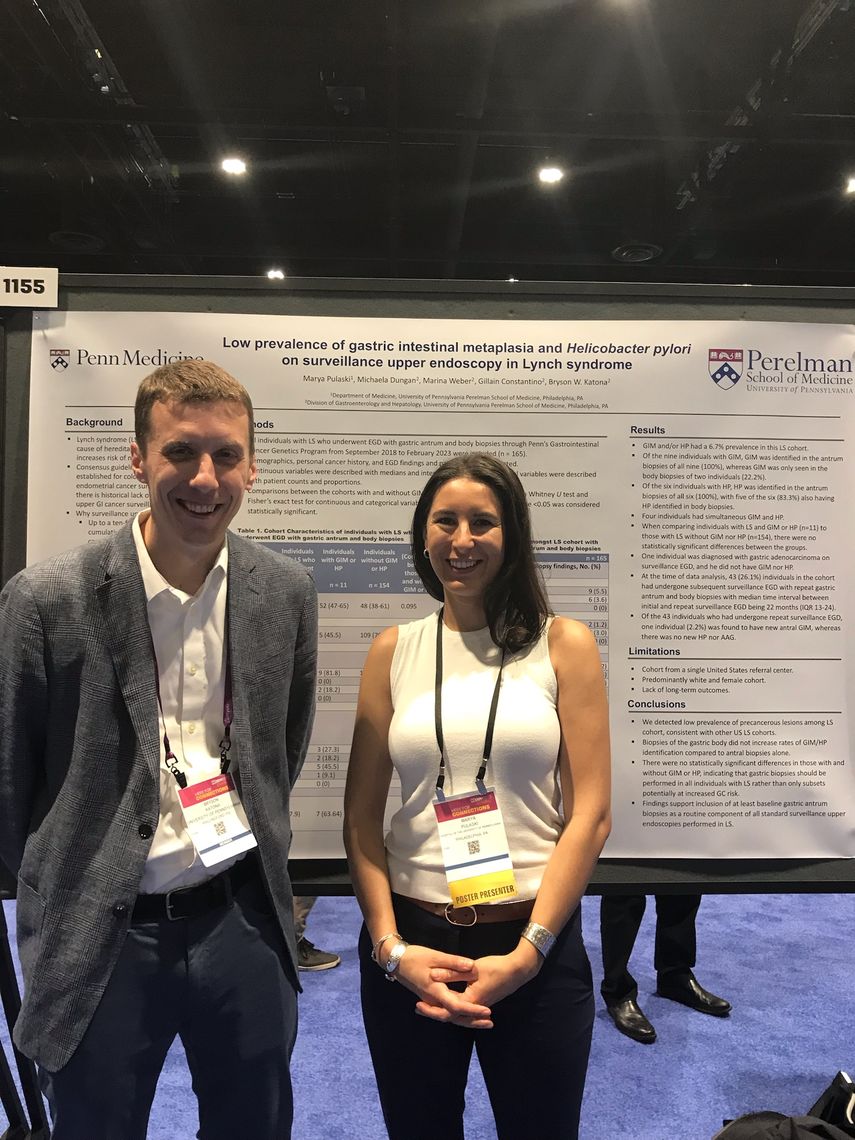
April 2023
The Katona Lab and Levy Lab celebrated completion of participant recruitment for our β-hydroxybutyrate study! Thanks to the hard work of so many in our groups who allowed us to hit this milestone less than 1 year since recruitment began.

Isabel presented her Master's Thesis work at the Penn's Master's Student Research Colloquium.
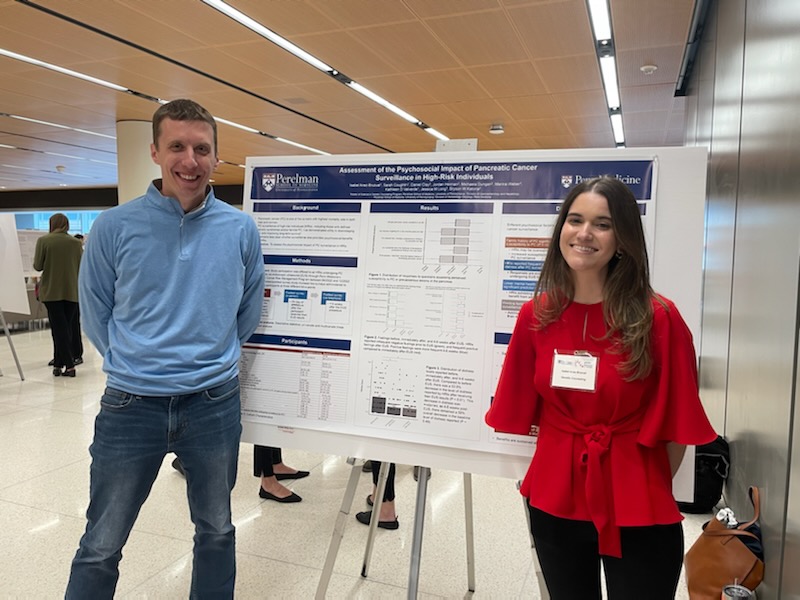
March 2023
Bryson was interviewed by Sandy Bauers the Philadelphia Inquirer about Lynch syndrome. Read the article here!
Penn had a successful 2nd Annual Lynch Syndrome Symposium on March 22nd 2023, and the Katona Group was out in full force during the event.

January 2023
Welcome to Sam Levy, a Master's in Genetic Counseling graduate student, who joined our group and will be examining patient decision-making about CDH1 testing on multigene panel testing.
December 2022
In an effort led by Kole Buckley, we published the first comprehensive review of BRCA1- and BRCA2-associated gastric cancer in Cancers.
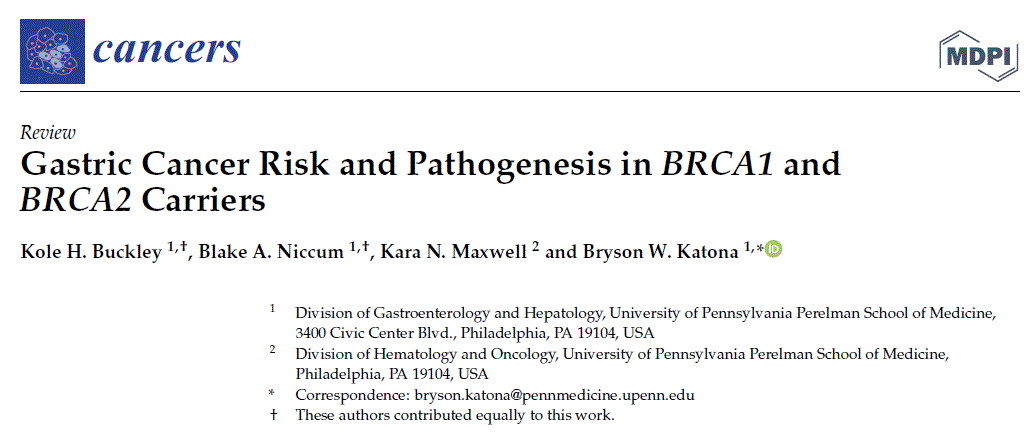
November 2022
Bryson Katona presented results from our study of the yield of multigene panel testing in patients with colorectal cancer at the CGA-IGC Annual Meeting in Nashville. Excitingly these results were simultaneously published in JCO Precision Oncology, and picked up the ASCO Daily News. To date, this is the largest study examining outcomes of multigene panel testing in colorectal cancer patients, and it showed that there was a high rate of clinically actionable variants detected across all age groups, all panel sizes, and all racial/ethnic groups. This data supports broadening germline genetic testing criteria for colorectal cancer patients.


Also at the CGA-IGC Annual Meeting in Nashville, Sam Williams presented her thesis work looking at outcomes of in-person versus telehealth GI cancer genetic appointments as a Poster of Distinction. Her poster was also selected as one of the posters featured on the Poster Walk!
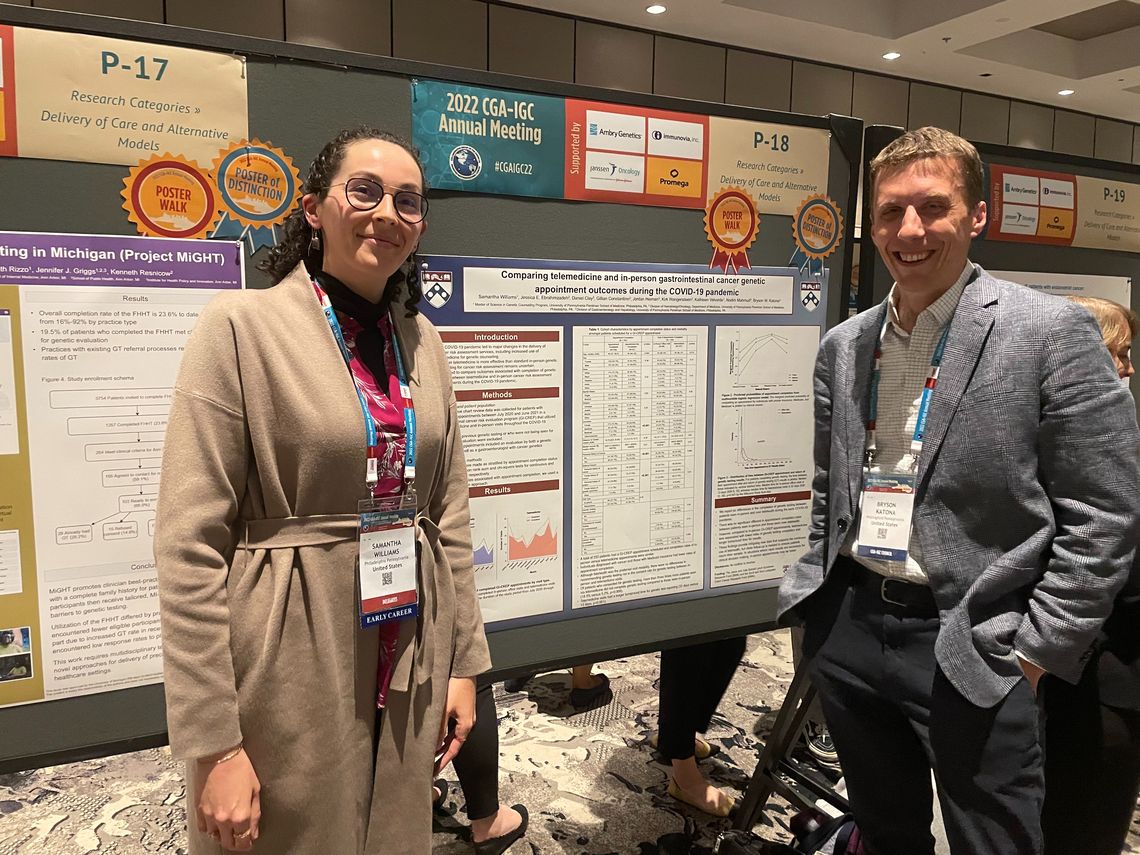
October 2022
Welcome to Marina Weber who joined the group as a Clinical Research Coordinator.
July 2022
Welcome to Kole Buckley who joined the group as a Post-Doc. Kole's research will be focused on understanding gastric carcinogenesis in hereditary gastric cancer predisposition syndromes and using immune-interception as a mechanism for gastric cancer risk reduction.
June 2022
Welcome to Michaela Dungan and Tasnim Eba, who both joined the group as Clinical Research Coordinators. Congratulations to Thomas Nyul who transitioned to a Research Specialist A in our group.
The initial results from the multicenter CAPS5 study (Penn site PI - Katona) were published in the June issue of the Journal of Clinical Oncology. Excitingly the study showed that the majority of pancreatic cancers detected on surveillance in high-risk individuals were stage I and had long-term survival, providing much needed evidence to support the efficacy of pancreatic surveillance in high-risk populations.
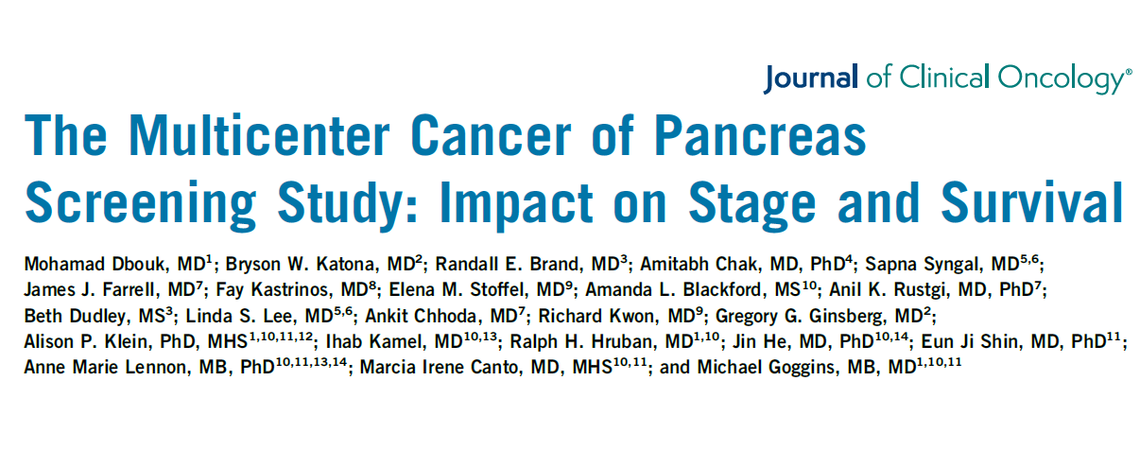
April 2022
An exciting paper that our group contributed to was published in Nature, showing how beta-hydroxybutyrate suppressed colorectal cancer (Nature paper). To continue the exciting momentum in this area we opened a new clinical trial simultaneously with publication of the manuscript, that is the first study in humans to examine the the role of beta-hydroxybutyrate supplementation in colorectal cancer prevention (Clinical trial information).
February 2022
Published in the February issue of Cancers is the first comprehensive review of upper gastrointestinal cancer surveillance in Lynch syndrome. Including data from our experience at Penn, current data is supportive of upper gastrointestinal cancer surveillance as an effective method to identify precancerous lesions and early-stage cancers in Lynch syndrome.
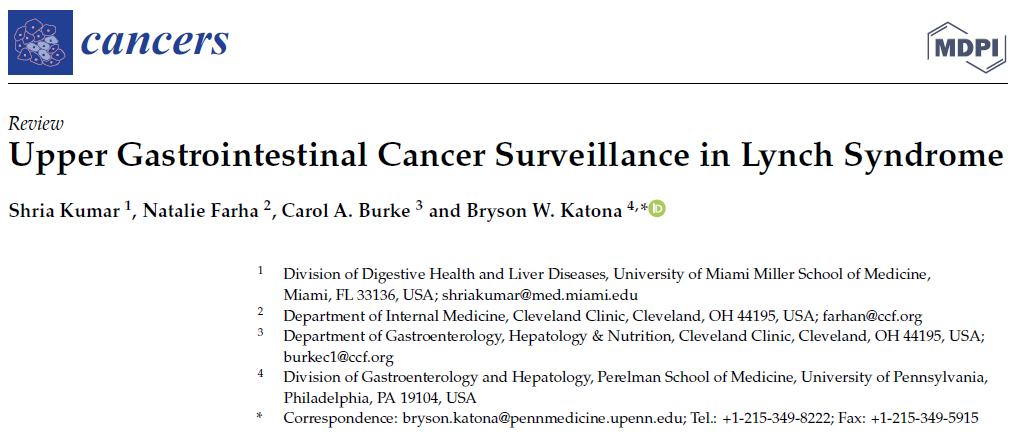
January 2022
Welcome to Isabel Anez Bruzual, a Master's in Genetic Counseling graduate student, who joined our group and will be examining the perceived utility and psychological impact of pancreatic cancer screening in high-risk populations.
November 2021
Published in the November issue of World Journal of Clinical Oncology, we report on the outcomes of screening for small bowel and urinary tract cancer in Lynch syndrome, showing that broad incorporation of these modalities into Lynch syndrome care is unlikely to helpful.
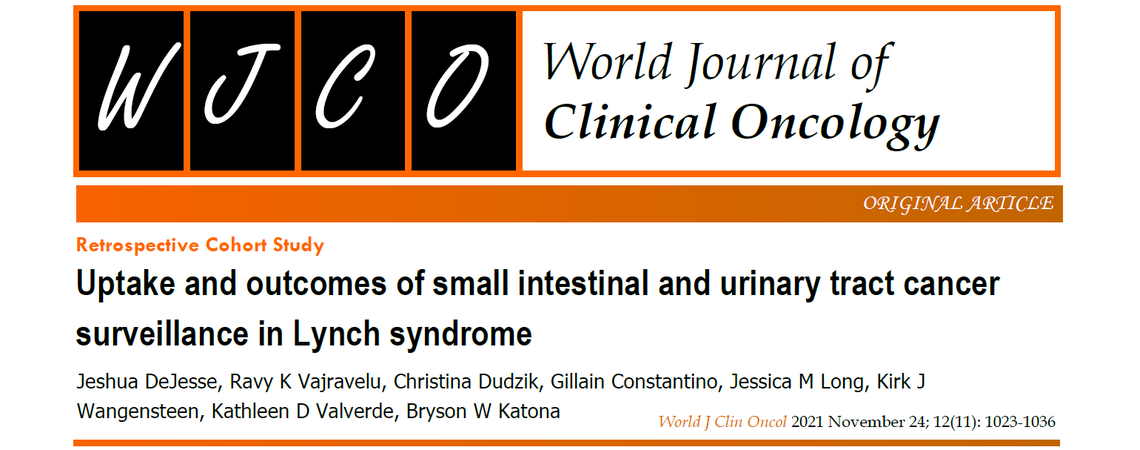
September 2021
Welcome to Keely Beyries, who joined our group as a Research Specialist A, as well as Thomas Nyul who joined as a Student Researcher. Congratulations also to Taylor Hojnacki for her promotion to Research Specialist B.
August 2021
This month, published in Cancer Prevention Research, we report our outcomes of pancreatic cancer surveillance in BRCA1, BRCA2, PALB2, and ATM carriers, and illustrate that surveillance can be considered in these individuals at increased pancreatic cancer risk.

June 2021
Welcome to Daniel Clay, who joined our group as a Clinical Research Assistant. Jessey Yang, who is a current University of Pennsylvania undergraduate student, also joined our group.
April 2021
Now published in Pancreatology, the COVID-19 pandemic led to significant disruptions in pancreatic cancer surveillance amongst high-risk individuals in the multi-center CAPS5 Study.
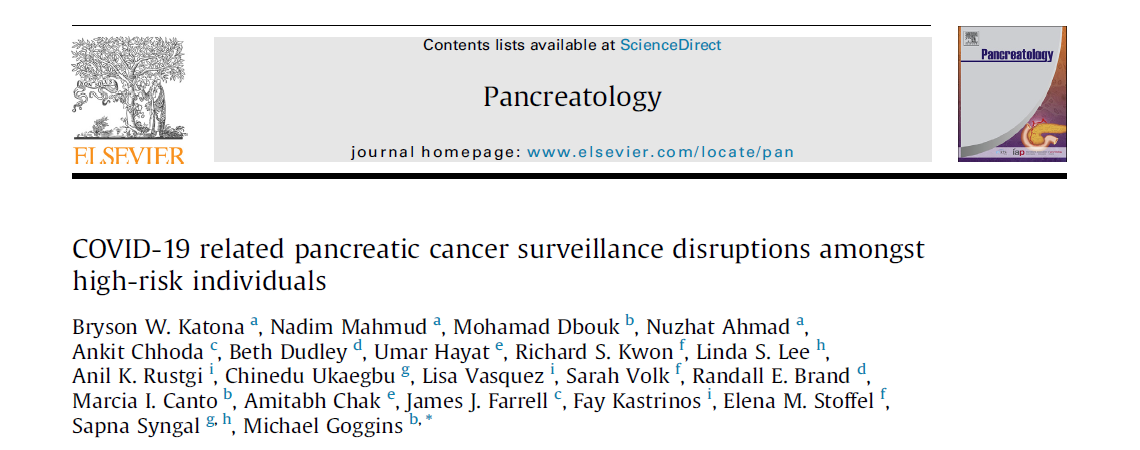
February 2021
Welcome to Jordan Heiman, who joined our group as a Clinical Research Coordinator.
Just published in Cancer Prevention Research, COVID-19 led to significant disruptions in Lynch syndrome surveillance, especially amongst young individuals.
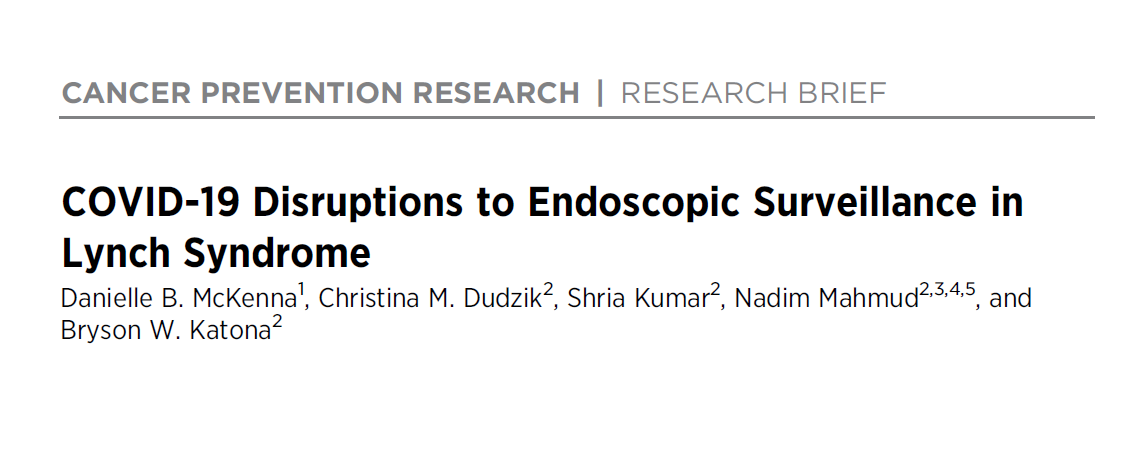
January 2021
Welcome to Samantha Williams, a Master's in Genetic Counseling graduate student, who joined our group and will be examining the effects of telehealth use during the pandemic on GI cancer genetic testing outcomes.
October 2020
Our multi-institutional collaborative effort defining the distinct different phenotype of mutation-negative Juvenile Polyposis Syndrome was published in Cancer Prevention Research.
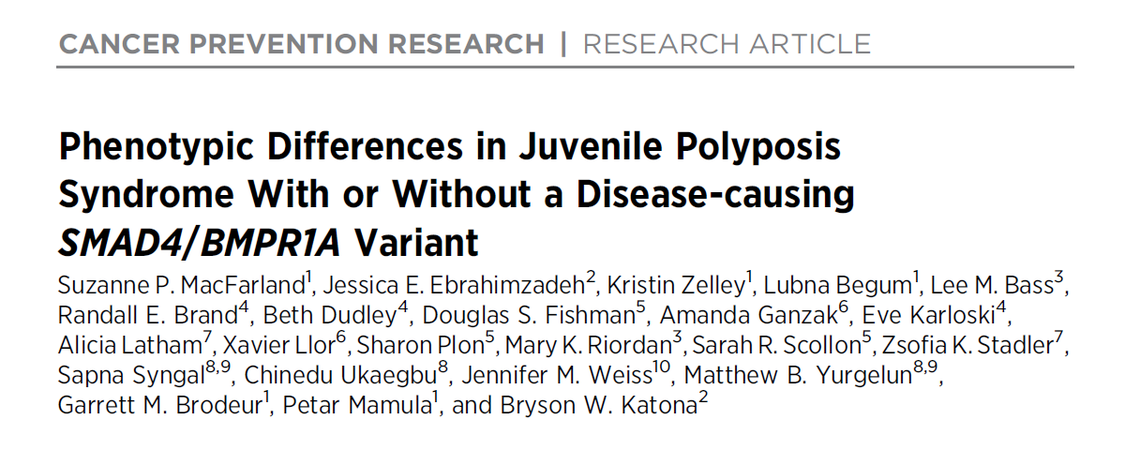
September 2020
Just published in Molecular Cancer Therapeutics, menin represses glycolysis in colorectal cancer cells, which in combination with autophagy protects colorectal cancer cells from small molecule EGFR inhibitors.
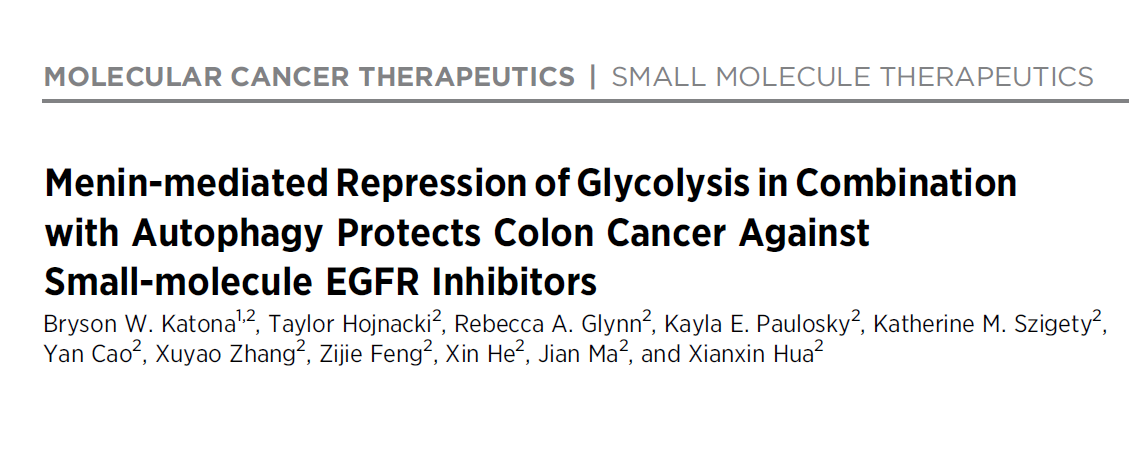
Upper GI cancers are observed in Li-Fraumeni syndrome and upper GI surveillance should be a part of LFS surveillance. These results were just published in the American Journal of Gastroenterology.
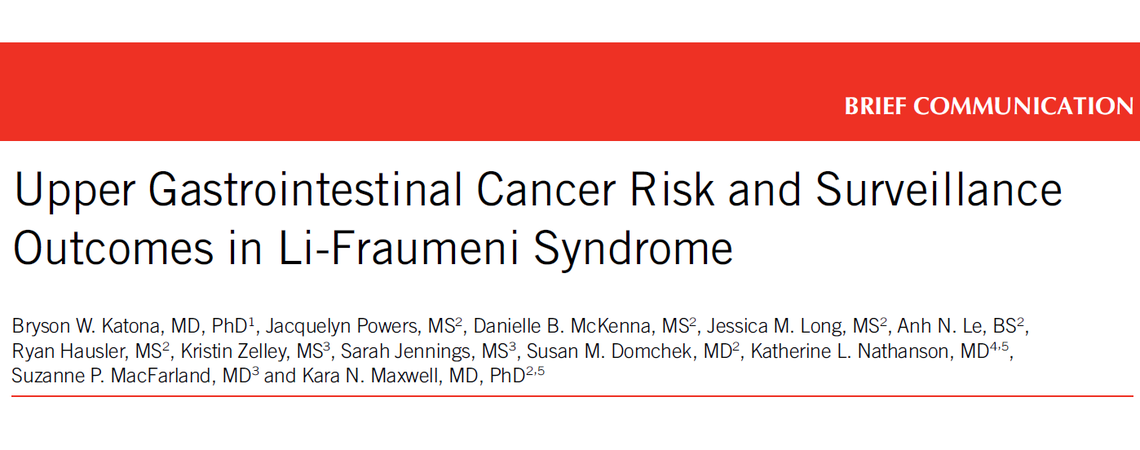
August 2020
Welcome to Gillain Constantino, who joined our group as a Clinical Research Coordinator.
The largest report to date of upper GI surveillance in Lynch syndrome demonstrates that upper GI cancers are detected during surveillance at a lower stage than those detected outside of surveillance. These results were published in Cancer Prevention Research.
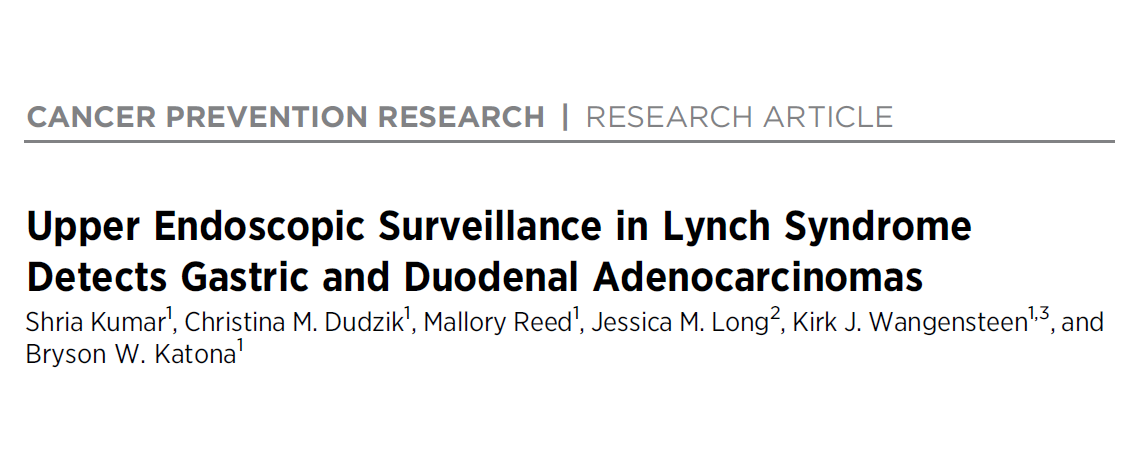
March 2020
Disparities in race, health insurance coverage, and medical status exist in GI cancer risk assessment appointment completion, showing that we have work to do to ensure equitable access to these important GI cancer risk assessment services. These results were published in a Special Issue of the Journal of Genetic Counseling entitled "Minority and Health Disparities in Research and Practice in Genetics Counseling and Genomic Medicine."
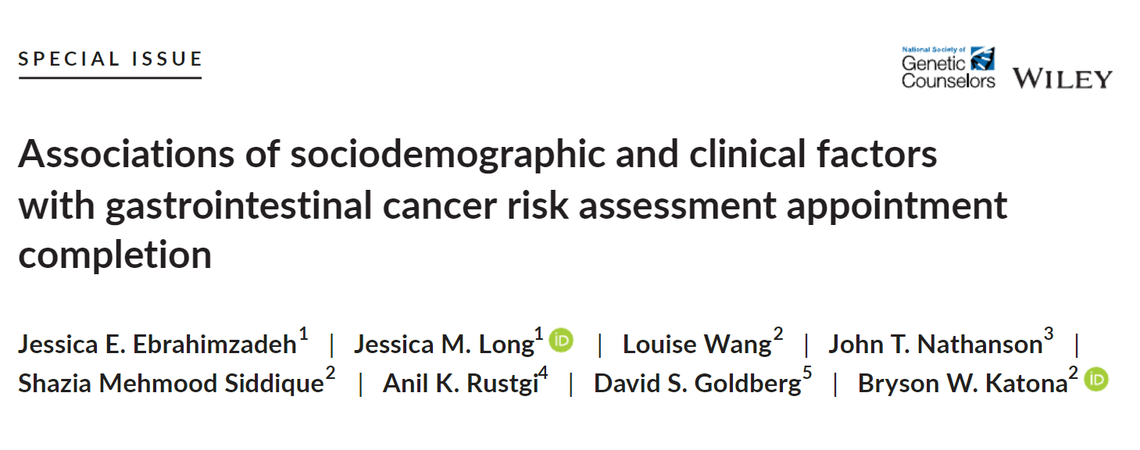
February 2020
Welcome to Jeshua DeJesse, a Master's in Genetic Counseling graduate student, who joined our group and will be looking at uptake and outcomes of extracolonic screening in Lynch syndrome.
We just published the first large-scale study of CTNNA1 loss-of-function variants identified on multigene panel testing in Genetics in Medicine.
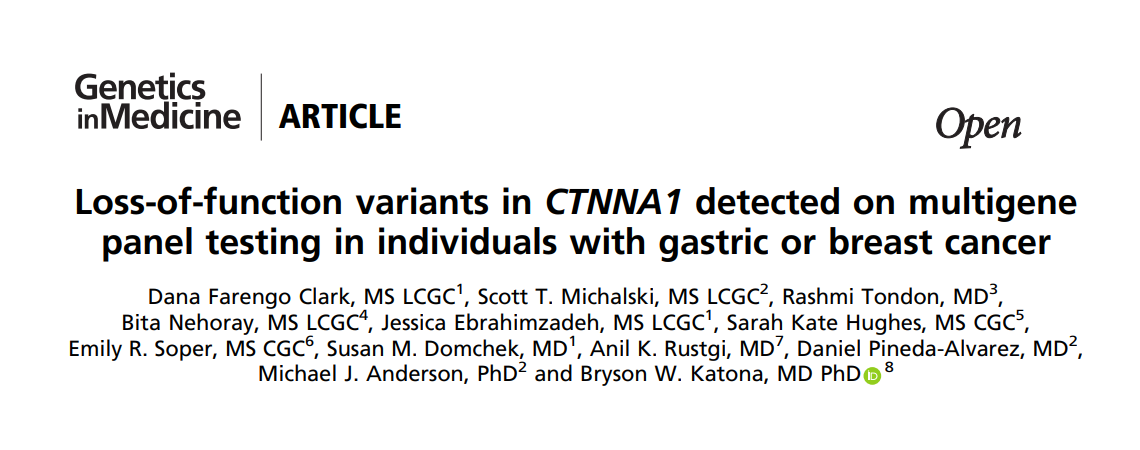
December 2019
Discovering unexpected CDH1 variants on multigene panel testing is challenging for both patients and providers. Our recent commentary in the Journal of the National Cancer Institute examines the challenges of including CDH1 on multigene panel testing.
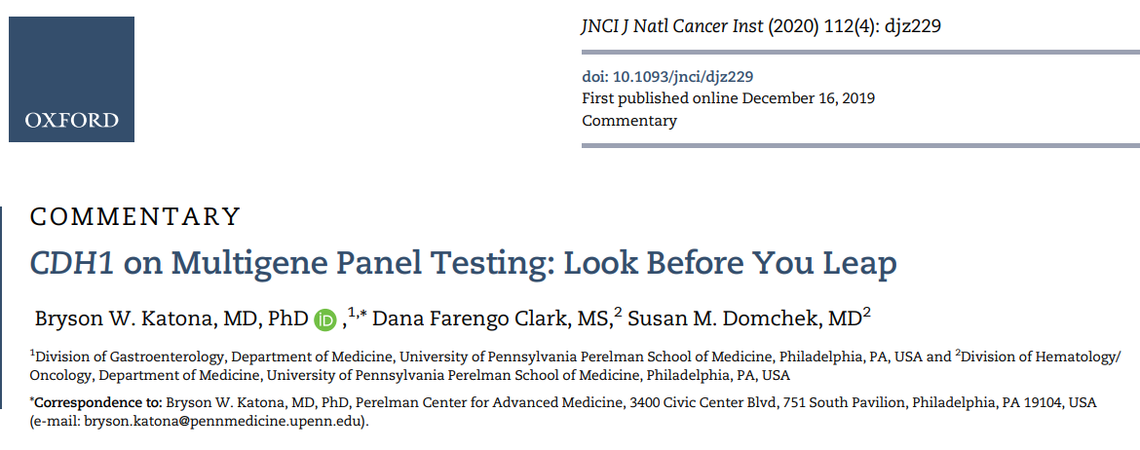
September 2019
Welcome to Christina Dudzik, who joined our group as a Clinical Research Assistant.
Bryson Katona authors a comprehensive review on chemoprevention of colorectal cancer, published in Gastroenterology.
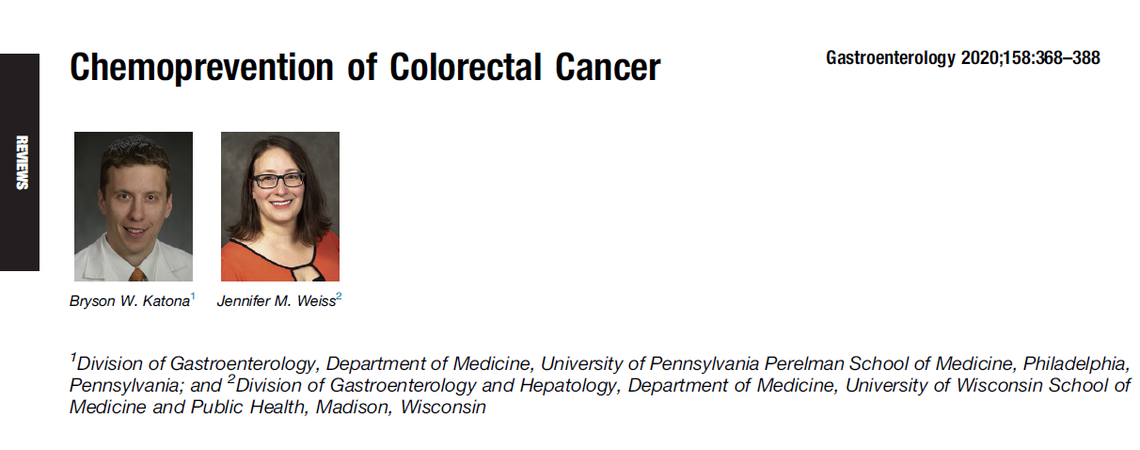
March 2019
As just published in Cancer Research, menin is over-expressed in colorectal cancer, and inhibition of menin synergizes with small-molecule EFR inhibitors to suppress colerectal cancer growth.
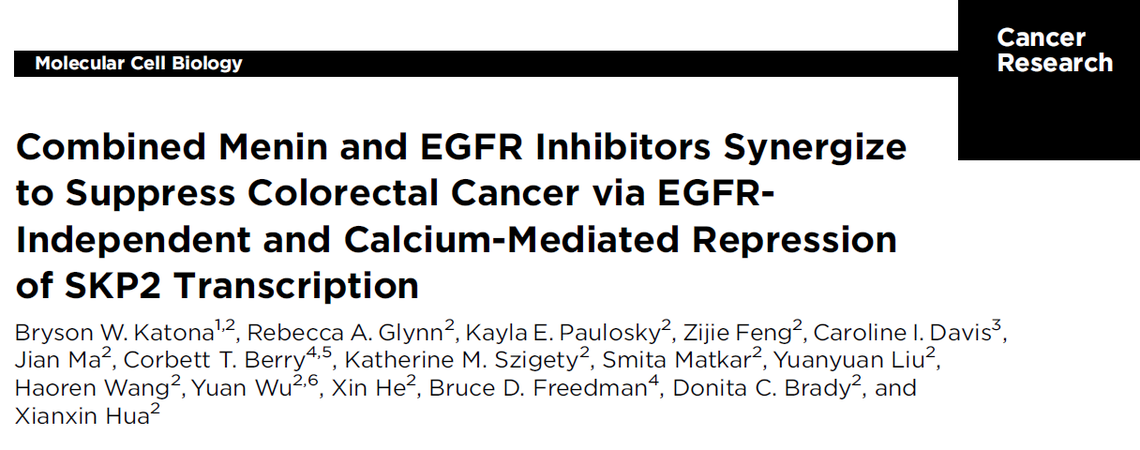
January 2019
Welcome to Taylor Hojnacki, who joined our group as a Research Specialist.
May 2018
A new, novel duplication in GREM1 is identified, representing only the 4 published duplication in the GREM1 promoter associated with hereditary mixed polyposis syndrome. These results were published in Familial Cancer.
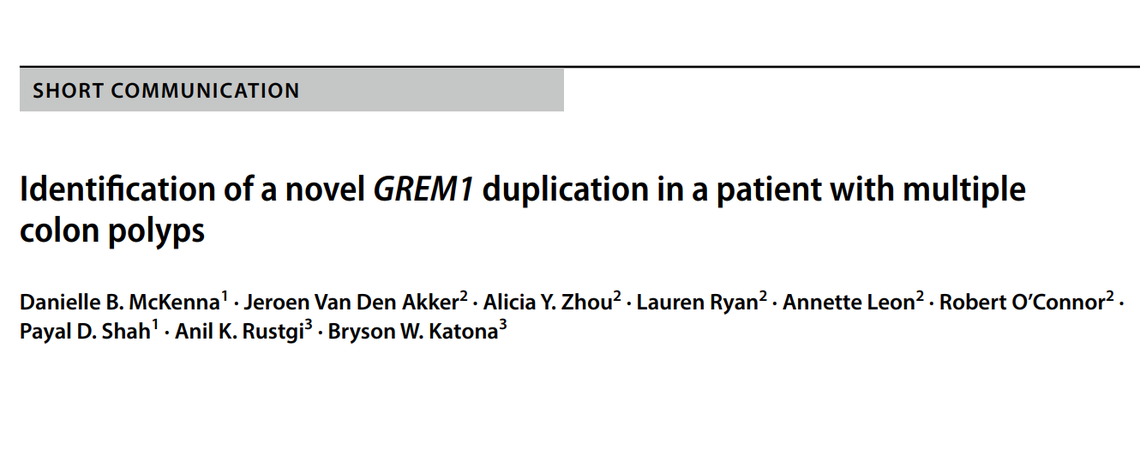
March 2018
A collaborative publication between the University of Pennsylvania, Memorial Sloan-Kettering Cancer Center, and Dana-Farber Cancer center published in Genetics in Medicine, provides a counseling framework for moderate-penetrance colorectal cancer gene variants.
